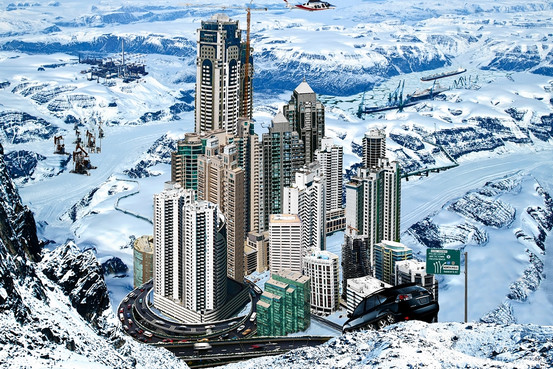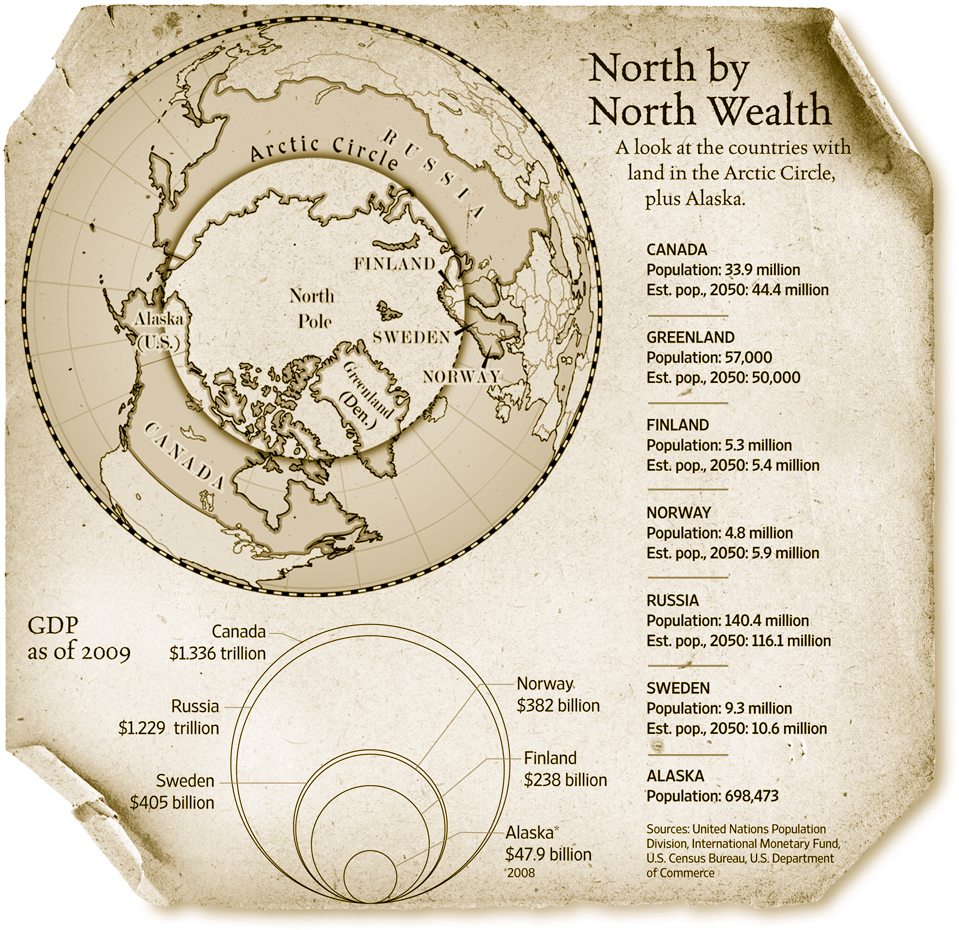
WSJ weekend full-pager by Laurence Smith, prof of geography at UCLA, and it's pulled from an upcoming book, "The World in 2050." Get used to seeing such analysis: exploring global warming's upside--geographically speaking.
A lot of good, fertile land sitting with technologically advanced and relatively wealthy populations will come into play, along with a lot of transportation connectivity made possible or kicked into year-old exploitation.
This article focuses on the Arctic (above the Circle), and flips Jared Diamond on his head, asking not what makes civilizations perish but what allows them to grow? His answer:
First and foremost will be economic incentive, followed by willing settlers, stable rule of law, viable trading partners, friendly neighbors and beneficial climate change.
Point being, you toss in the beneficial climate change and the northern states have all the mixings.
Now, the guy does rightfully call out Russia an an outlier, but my expectation is, Russia will see this as a godsend and fall into the misguided notion of having to dominate to flourish because its geography and experience base will put it in good stead.
Right now the Arctic is a welfare state of sorts: deeply subsidized economic activity that centers on extractive industries (the Core's version of the Gap sans the violence).
Will these wastelands get settled? Did the barren desert of America's southwest?
The close:
I imagine the high Arctic, in particular, will be rather like Nevada--a landscape nearly empty but with fast-growing towns. Its prime socioeconomic role in the 21st century will not be homestead haven but economic engine, shoveling gas, oil, minerals and fish into the gaping global maw.
Sidenote: here's another slew of countries China will need to be friends with due to its extreme resource dependencies.
Just thank God we bought Alaska while we could.
While not exactly on topic WRT this piece, it raises the question of whether or not buyers of certain ag commodities could exploit global warming to shift production from current locations to better ones--as in, safer, more stable, easier to control, etc.
